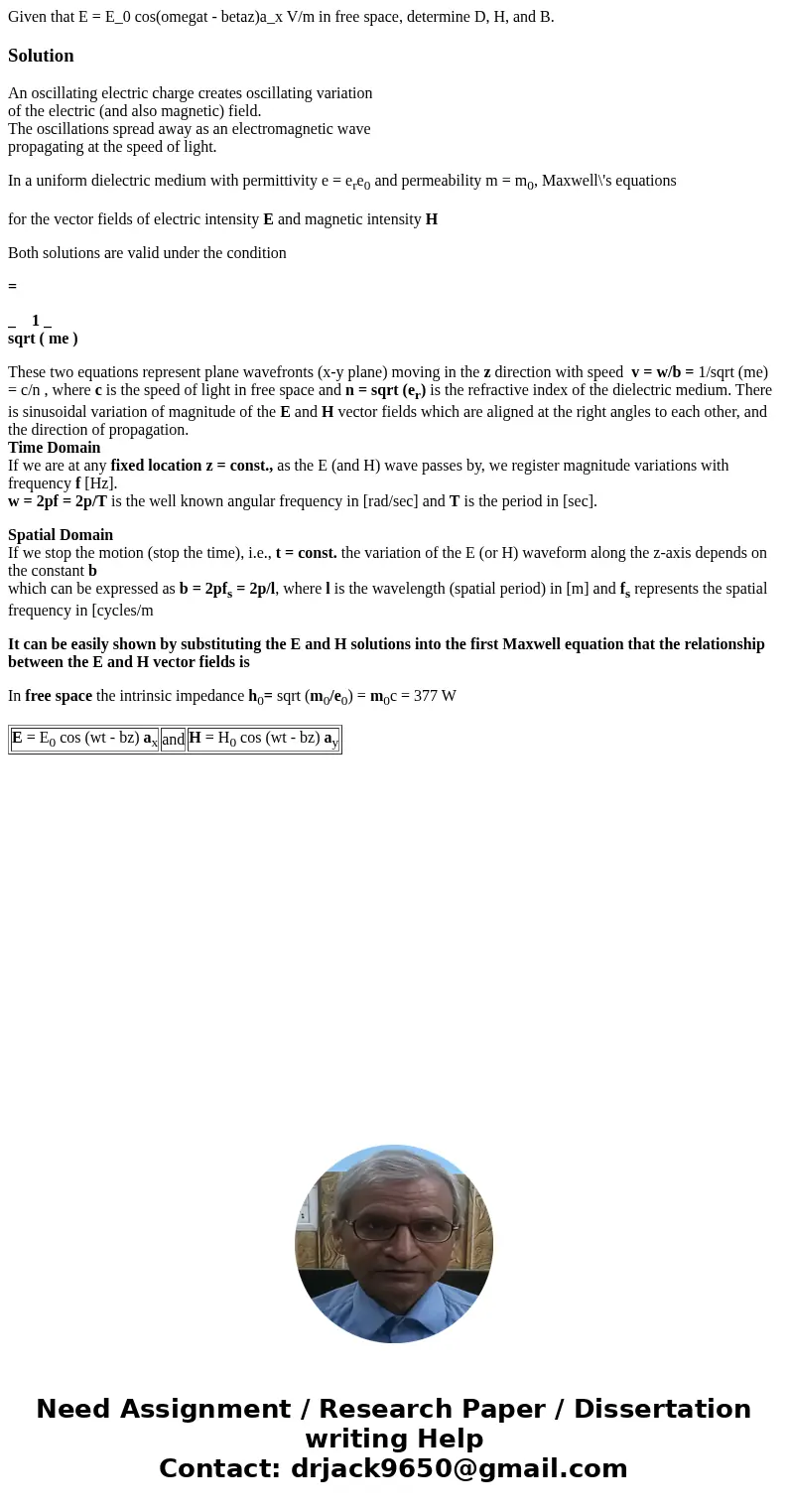Given that E E0 cosomegat betazax Vm in free space determi
Solution
An oscillating electric charge creates oscillating variation
of the electric (and also magnetic) field.
The oscillations spread away as an electromagnetic wave
propagating at the speed of light.
In a uniform dielectric medium with permittivity e = ere0 and permeability m = m0, Maxwell\'s equations
for the vector fields of electric intensity E and magnetic intensity H
Both solutions are valid under the condition
=
_ 1 _
sqrt ( me )
These two equations represent plane wavefronts (x-y plane) moving in the z direction with speed v = w/b = 1/sqrt (me) = c/n , where c is the speed of light in free space and n = sqrt (er) is the refractive index of the dielectric medium. There is sinusoidal variation of magnitude of the E and H vector fields which are aligned at the right angles to each other, and the direction of propagation.
Time Domain
If we are at any fixed location z = const., as the E (and H) wave passes by, we register magnitude variations with frequency f [Hz].
w = 2pf = 2p/T is the well known angular frequency in [rad/sec] and T is the period in [sec].
Spatial Domain
If we stop the motion (stop the time), i.e., t = const. the variation of the E (or H) waveform along the z-axis depends on the constant b
which can be expressed as b = 2pfs = 2p/l, where l is the wavelength (spatial period) in [m] and fs represents the spatial frequency in [cycles/m
It can be easily shown by substituting the E and H solutions into the first Maxwell equation that the relationship
between the E and H vector fields is
In free space the intrinsic impedance h0= sqrt (m0/e0) = m0c = 377 W
| E = E0 cos (wt - bz) ax | and | H = H0 cos (wt - bz) ay |

 Homework Sourse
Homework Sourse